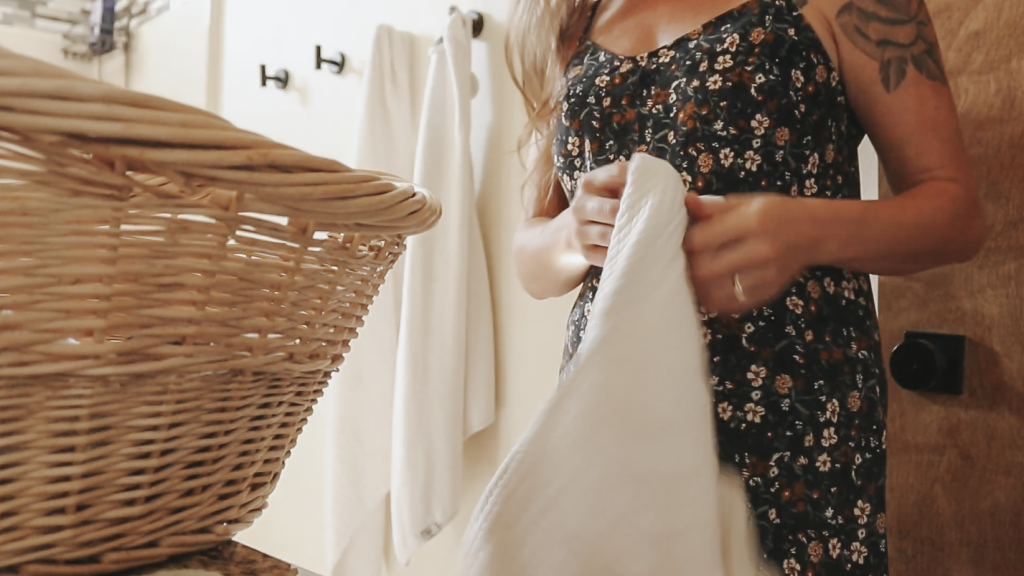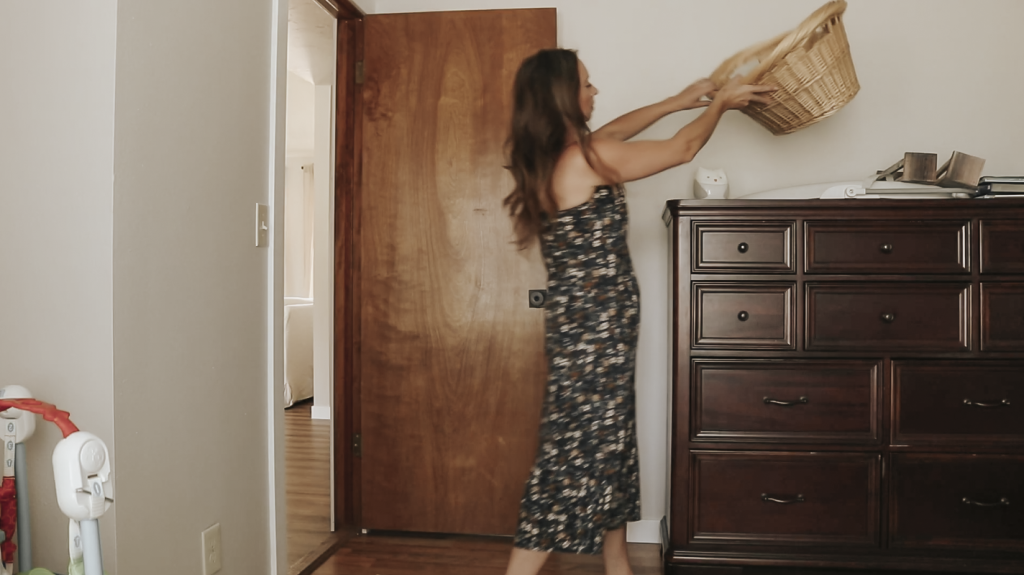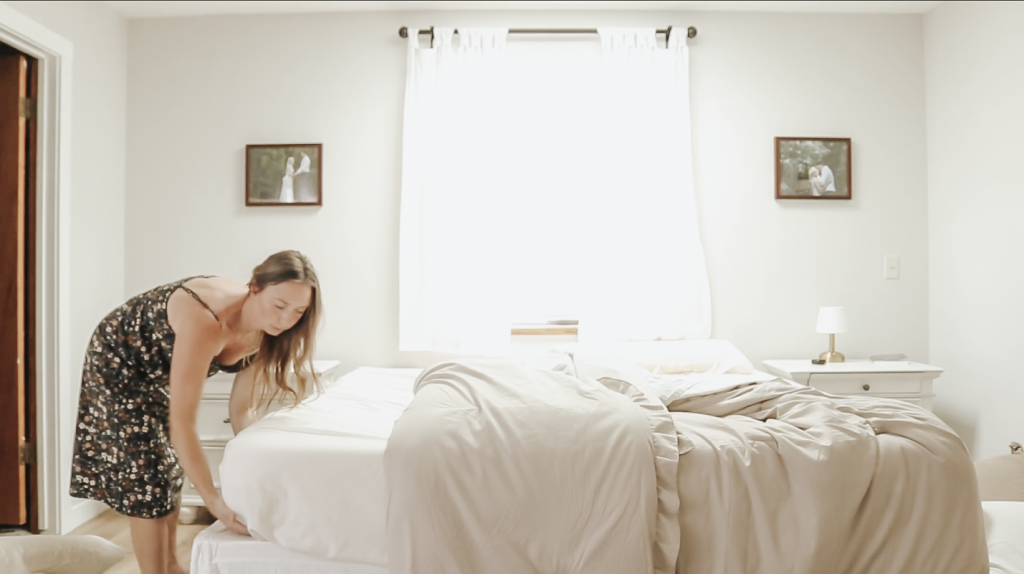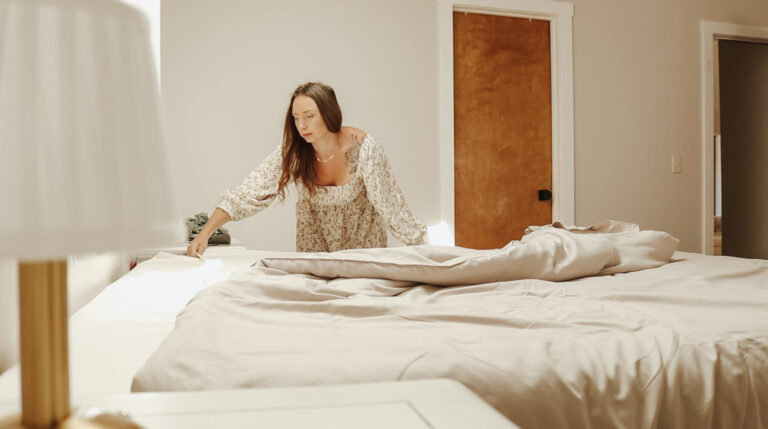How God Heals Trauma Through Motherhood
Motherhood has a way of exposing wounds you didn’t even know you had.
When a toddler throws a tantrum in the grocery store, or when your baby won’t stop crying at 2 a.m. and you react in strangely disproportionate ways.
And yet — here’s the shocking part — it’s in that fragile place, your hidden breaking point, where you feel that deep ache you didn’t even know was there, that God begins His most surprising work of healing.
I know because I lived it. And yet, it was in those moments of despair that He met me with His grace — the daily manna I needed for that moment— not all at once, but enough for that day. And then the next day. Until now, looking back, I’m so much further in sanctification than I was years ago, and yet, He has even more grace.
Through motherhood, God took my trauma and began reshaping it into peace, joy, and a kind of healing I didn’t think was possible and didn’t even know was needed until I became a mother.
In this post, I’m going to show you exactly how God heals trauma through motherhood in 4 profound ways. We’ll talk about the surprising places He shows up, and why your weak moments are exactly where His strength grows.
When Pain Meets Purpose
Motherhood isn’t just feeding, diapering and cuddling your little ones— it’s spiritual warfare and sanctification, all wrapped into one.
And right now, so many Christian mothers are walking through their days carrying not only the weight of mothering and discipling their children but the weight of unhealed wounds. Trauma that was never dealt with. Stories that are waiting to be redeemed.
Those wounds don’t just stay hidden. They spill out into our marriages, our homes, even our mothering.
But here’s the good news: God doesn’t waste your pain. He uses the very circumstances you would never choose — to draw out the brokenness so He can heal it.
I was a miserable Christian mother, wondering if this was all life had to offer. And then God began to show me another way.
4 Ways God Heals Trauma Through Motherhood

1. By Rewriting Attachment and Breaking Generational Patterns
My life started with trauma. My biological mom was a heroin addict. I was found abandoned on the streets of Seattle in a soggy diaper when I was one year old.
This was followed by foster care —and with that came more abuse.
Eventually, I was adopted by loving parents. But inside I was still broken. Even in safety, I carried anxiety like an open wound. And a piece of me felt like it was missing.
That missing piece showed up everywhere—in my friendships, in dating, even in marriage. I struggled to trust that those I loved most would stick around. Deep down, losing my mother left me waiting for everyone else to leave too and sometimes trying to beat them to the punch.
And when I became a mother, that wound didn’t disappear. If anything, it became sharper. I feared not that I wouldn’t bond with my children, but that my love itself was too intense—so fierce that it felt terrifying, almost unbearable.
Psychologists would call this a form of hyper-vigilant attachment anxiety: when early abandonment or loss teaches your nervous system that closeness is unsafe, even the deepest love can feel threatening.
Sometimes their needs felt overwhelming, like too much for me to carry because deep down, I feared that if I let myself fully love or respond, I might fail them or somehow lose them, just like I had felt abandoned as a child.
But here’s the grace: God didn’t leave me in that place. In motherhood, He began rewriting my attachment and breaking generational patterns.
As I bonded with my children—through eye contact, through comfort, through delight—He was simultaneously restoring me, showing me what steadfast and secure love truly feels like.
Psalm 27:10 says, “For my father and my mother have forsaken me, but the Lord will take me in.” That’s exactly what He did. He took me in. He showed me that love doesn’t always leave, that nurture doesn’t abandon, that He Himself is the safest parent of all.
As God began re-parenting me through my children, I realized that the very wounds I carried didn’t have to define the next generation. Where trauma may have been handed down, motherhood became the place God empowered me to stop the pattern.
2. By Redeeming Triggers Through Teaching Embodied Safety

Trauma doesn’t always look like panic attacks. Sometimes it shows up in moments that terrify you—like sudden, unexplainable anger toward your own child. I never expected motherhood to bring rage out of me. But I found myself snapping, yelling, slamming doors.
I had an anger that scared even me and it would come at the most bizarre times. For example, when I would put the shoes on my child and he would reach up and touch my chest and I would lose my mind instantly. Both of us would be shocked.
I still don’t know why I did that, but I know that for whatever reason I was triggered and sent into a trauma response.
Anxiety and mom anger are connected. Anxiety is fear of losing control, and when that fear boils over, it can erupt as an outburst of anger.
Scripture tells us 365 times not to fear—once for every day. But here’s the truth: you don’t need coping strategies for anxiety. You need actual freedom.
For me, that freedom began when the Lord showed me that healing wasn’t instant—it was daily. God used practical tools—paired with His Word—to retrain my brain. I wasn’t just coping. I was learning to respond differently to triggers.
It was through co-regulation—rocking my distressed baby through a colicky night, holding my toddler through a tantrum, and simply being physically present with my children—that I discovered embodied safety. Those gentle touches, cuddles, bedtime rituals were rewiring my nervous system.
The rage that once consumed me became gentleness. The triggers that once felt like death became doorways into healing.
3. By Learning Surrender Through Restoring Trust

Healing doesn’t come from controlling outcomes—it comes from surrendering to the Lord in whatever circumstances He places you. When we moved to Idaho, I knew it was the Lord’s will. But I underestimated how homesick I would feel.
One day, a gal named Juanita came to my house to pick up boxes. We talked about the move, and she just seemed to know exactly what to say. I told her, “We felt very clearly that this was God’s direction.”
And she said, “Sometimes when God leads you somewhere, it can be pretty difficult and uncomfortable and harder than you thought, right?” The fact that she named exactly what I was feeling without me saying it—it just showed her maturity and the life experience she carried.
Trust me, I’m going somewhere with this…
One of the things I was dreading most about moving to this specific house was the neighborhood. But you know what? This has actually become the greatest blessing. We met the most hospitable neighbors, found community almost instantly, and felt so welcomed. So my point is that sometimes God calls us to incredibly difficult callings in life—but He can use those to become the greatest blessing.
Motherhood works the same way. The moments that expose your worst self—the impatience, the fear, the doubt—are often the very places God intends to heal you.
After meeting our neighbors and feeling the blessing in a place I had dreaded, I realized something: sometimes God calls us into discomfort not to punish us, but to give us something we didn’t even know we needed.
4. By Healing Shame with Grace

For years I said, “This is just who I am—an anxious person, an angry mom.” But the day I stopped defending my dysfunction and started asking God, “Who do You say I am?” was the day everything changed.
We aren’t slaves to our thoughts—we are stewards of them.
That shift—from identifying with my trauma to identifying with Christ—was what rewired my brain, my motherhood, and my whole life. Because when Christ sets you free, you are free indeed.
I remember being in a season where I thought, “I can’t do this one more second, let alone several more years until my child goes to school.
And then…I would. Not because I found new strength, but because God met me in my weakness.
Healing doesn’t happen all at once—it happens day by day, moment by moment, as His grace fills the cracks of your weakness.
Sometimes healing doesn’t come through escaping the hard moments. It comes through finding gratitude, even in the very trenches you wanted to get out of.
In the ordinary, messy, chaotic rhythms of life, God’s grace shows up — and you can choose to embrace it, because His strength is made perfect in our weakness (2 Corinthians 12:9).
Hope for the Wounded Mother
Motherhood isn’t just about raising children—it’s about letting God shape and grow us along the way.
In the messy, exhausting, joyful moments, He rewrites our hearts, restores trust, heals shame, and teaches us to love more fully.
The wounds of the past don’t have to define the next generation, because His grace meets us right where we are.
If you feel like you’re stuck in survival mode and your past keeps creeping into your motherhood, it’s not too late—you can be free.
I walk through the exact system God used to heal me in my free workshop. You can join anytime!








That was so well written. Thank you for being so candid.